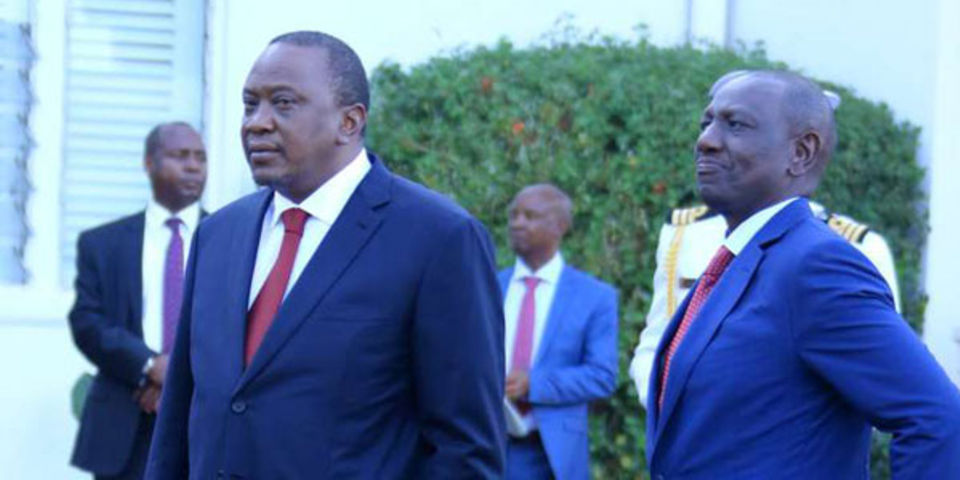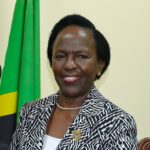The conception and design of the 2010 constitution was anchored on the historical failures, traditional and modern socio-economic, cultural, and political bottlenecks, and the prospects of a better and prosperous Kenya.
Proponents of the constitution expressed their desire for a Kenya characterized by efficient institutions that protect the inherent interests of all Kenyans. A Kenya that guarantees the separation between the three organs of the state: the Executive, Legislature, and Judiciary.
The formation of the Cabinet by Kenya’s fourth President in the first and second terms relied on the intentions, paradigms, and philosophies that guided the promulgation of the 2010 Constitution. President Uhuru Kenyatta – having worked in the private and public sectors – was very aware of the threat of politically exposed persons in the executive.
In fact, part of President Uhuru’s leadership philosophies were borrowed from the late President Mwai Kibaki, who will is remembered as one of the best leaders and heroes to lead the nation. Kenya’s third president leveraged the technical knowledge and expertise of successful leaders in the private sector to run key government ministries, state agencies, governmental departments, and policy-driven committees.
The approach borrowed by Retired President Uhuru Kenyatta was very successful in the development of important projects and programs, including the Big Four Agenda, infrastructure development programs, and education programs such as TVET, among other changes in Kenya’s social, economic, and political environment.
The ‘Technocratic Cabinet’ by President Uhuru Kenyatta enjoyed greater independence due to limited distractions from the happenings in the political underworld. The design, development, and implementation of key government policies was devoid of any future political ambitions and ensured service delivery to every Kenyan, irrespective of geographical, cultural, or ethnic differences.
Regional representation was felt across the country, and no region felt ‘outside government’ irrespective of the voting patterns witnessed in the 2012 and 2017 Presidential elections. However, this is likely to change as politicians in the cabinet are likely to change as politicians in the cabinet battle to balance national interest with their own regional political ambitions.
The appointment of politicians and politically exposed persons (PEP) into the cabinet erodes the strides and milestones achievements achieved since the promulgation and implementation of the progressive 2010 Constitution.
Proponents and champions of the 2010 constitution were well aware of the social, political, and economic impact of a politically dominated cabinet.
Policy shapers opine that the fourth administration may be shielded from some blame, considering they kicked off the first term while the new constitution was in its infancy. The first administration under the 2010 Constitution was confronted with an expanded executive, legislature, and a new wing of government: the County Government.
Despite the mishaps and the trial-and-error systems that pushed the country into debt, Retired President Uhuru Kenyatta was able to settle the ship and implement stringent public oversight policies. Among the strategies adopted was shielding the executive wing from the grip of politically exposed persons. In fact, Cabinet members that did not keep their distance from their political brothers and cousins went out of office with a bang.
Deputy President Rigathi claimed that the previous technocratic cabinet was disconnected from the people’s interest and that most policies were implemented blindly without the “people’s touch.” Funny enough, I somehow agree with our Deputy President, Rigathi Riggz Gachagua.
While this is true, the implementation of policies must be based on rationality, realism, and sustainability rather than idealism and populism. For instance, we may decide to negate the taxation of sugar due to the current prices. Of course, all Kenyans will celebrate, but this will come back to bite KRA’s and the national government’s behind.
Technocrats, especially those that have thrown the towel in elective politics, are the ideal batch for Cabinet Secretary and Principal Secretary positions (and if the current administration decides that the wage bill is not already overstretched and appoints Chief Administrative Secretaries).
Technocrats are more concerned with the implementation of the best policies based on the current socio-economic and political situation and in line with future goals such as Millenial Development Goals and Vision 2030. For instance, the integration of the Competency-based Curriculum (CBC) is progressive and a conduit that can help bridge the skill gap widened by the previous education system. However, populist leaders have shunned the program, leveraging misinformation and lack of public knowledge to gain political mileage at the expense of Kenya’s future.
President Ruto’s Cabinet puts Kenya’s forward thinkers in reverse gear. The governance model will erode some of the tremendous achievements achieved in promoting the independence of the government’s independent organs, enhancing accountability and transparency in governance, and tackling Kenya’s second biggest challenge (after poverty): CORRUPTION!
In fact, there is little to no distinction between the Kenyan Bicameral Legislature and the Executives. The interests of those in parliament and those in the executive are aligned, with time being the only variable. Indeed the oversight role of the 13th Parliament of Kenya will be non-existent and significantly compromised.
President Ruto’s Cabinet is merely a self-serving political move that will guarantee a win in the 2027 elections, notwithstanding that the new government is yet to settle down!
The appointment of persons with integrity issues, questionable character, and shaky intellectual and academic backgrounds sums up Kenya’s next five years of disappointment in governance and leadership.
Leadership is about placing the interests of the electorate rather than rewarding political allies and loyalists without regard for the GREATER GOOD OF THE COUNTRY.
Eng. Bernard N. Kariuki
Director, BEWA Research
Founder: Voice ya Vijanaa
Mobile: 0728620677/ 0740835602
Email: bernardnjoroge17@gmail.com







